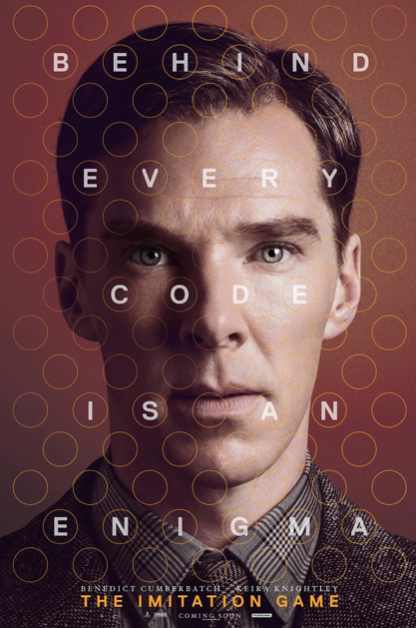“The Imitation Game” is an Original
“The Imitation Game,…took home the 2014 Oscar for Best Adapted Screenplay”.
March 30, 2021
The Imitation Game, directed by Morten Tyldum, tells the true story of Alan Turing(Benedict Cumberbatch) and his development of a decoding machine which helped the Allies ultimately win World War II. It also highlights the difficulty of dealing with a bona fide genius who is socially inept with no sense of social ques. Tyldum succeeds in every part of this movie from the screen imagery to setting the mood and took home the 2014 Oscar for “Best Adapted Screenplay”.
The visuals from the beginning of the movie establish the mood of an impending problem slowly building as the movie progresses. The shots of Bletchley Park, the small town in which Turing worked, give off a very peaceful atmosphere, dynamically contrasting with the hectic and stressful atmosphere of the code-breaking office. Throughout the movie Turing and a small group of Britain’s intelligensia attempt to crack what is reputedly an ‘unbreakable code’ in which the Nazis use to communicate classified information. Inevitably, interpersonal conflicts arise and friendships are formed which adds to the emotional tones of the film.
Cumberbatch plays his role perfectly, depicting Turing as a man whose intelligence gets in the way of his relationships with other people. He reminds the audience of Sheldon Cooper of The Big Bang Theory, but without the humor. These relationships become strained throughout the movie as Cumberbatch continues to disobey his boss and his colleagues to the point in which both wish to fire him. The viewer easily sympathizes with Turing’s misbehavior as the film employs flashbacks of his childhood where he was bullied.
The viewer also roots for Turing to finish his project. His decoding machine perfectly symbolizes the struggle and hours of hard work Turing and his colleagues invested in their efforts to break the “Enigma Code”. Complicated and complex, the machine has hundreds of moving parts occupying a large portion of his workspace. The emotional catharsis the viewer gets when his machine finally works is undermined very soon after with the hard choices the Allies must make regarding the use their new power. What attacks they head-off and those they allow to occur result in the very real deaths of soldiers.
The insurmountable joy gained from the success of the machine is undermined shortly there. Instead of a form of celebration, the viewer witnesses the mental breakdown of Turing. The high spirits of the Allied victory at the war’s end do not extend to the group that made it happen. Even with the code-breaking problem solved, the movie, due to the interesting scenes and large reveals, still is compelling. The supporting cast (Keira Knightley and Rory Kinnear) did a great job in highlighting Cumberbatch and exposing his odd tendencies while also making the film seem complete.
Overall, The Imitation Game definitely deserves a watch and one you will definitely think about for a couple of days after. You can watch this movie for$4 on “Xfinity on Demand”.
Final score: 5/5




























